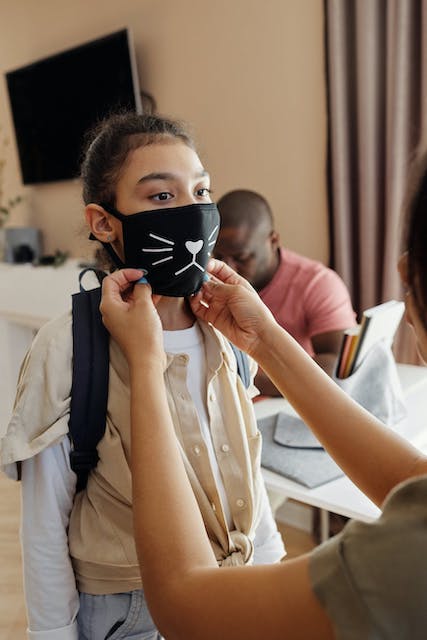Consideration on the part of the Department of Education, Innovation and Gender Relations to allow Grade Six and Form Five students back into classrooms as of June 5 as part of this academic year 2019/2020 is not sitting well with certain stakeholders within the education system.

Stakeholders like the Saint Lucia Teachers’ Union and the National Students Council, which is the umbrella body for all students councils in Saint Lucia have questions they would like the Department of Education to answer despite the latter’s contemplation of a phased re-opening of classes based on the advice of the Ministry of Health.
According to the Department of Education bringing Grade Six and Form Five students into classrooms is in preparation for the Common Entrance and CSEC Examinations. The Department also notes that it is keenly aware of the significance of all health, well-being and safety protocols as part of its consideration. The Department notes that it has engaged with several stakeholders and will continue to do so, mindful of the respective concerns of students, teachers, administrators, parents and support staff.
Although the Department has yet to make a final decision on whether to have a phased re-opening of the 2019/2020 academic year, institutions like the National Students’ Council and the teachers union are speaking out.
“Over the past few months, we have seen how the novel Coronavirus (COVID-19) pandemic has impacted the education sector and has initiated a transition from the physical classroom space to virtual and remote learning. As a result, students and teachers have resorted to the utilization of virtual learning platforms to facilitate instruction.
“As a student-led organization, the SLNSC (St Lucia National Student Council) focuses on ensuring that all students are represented, and all issues being faced by the student populace is addressed accordingly. This global crisis has shown that there is need for reformation of our Education System and moving forward we ought to have a solid contingency plan to mitigate against future global threats on the education of our students,” said the SLNSC Wednesday.
According to the Council, after consulting with its membership; students across the island, it realized the pertinency of expressing the views and concerns of students since they are the ones at the centre of the transition.
“The feedback provided by members has led to the following recommendations: Provision of visual guidelines as it relates to the distancing measures within classrooms and a clear representation of the recommended classroom holding capacity; Transportation should be provided by the Ministry of Education to and from school compounds to: Safeguard students from being exposed to uncontrolled interaction with the public, ensure that students arrive at school and return home in a timely manner, reduce financial strain on parents during this unprecedented pandemic, and decrease loitering of students in high risk areas,” noted the Council.
The Council further stated that in keeping with the knowledge that not all students are equally privileged with the majority depending on the feeding programs and school canteens, the Ministry of Education should provide assistance to those who are not able to carry meals from home.
“Washing of hands has been a major health and safety protocol during this time and many are concerned that schools may not have regular water supply. Therefore, the Ministry of Education should provide the necessary resources to ensure that all safety protocols are followed; e.g. additional water tanks and functional hand sanitizer dispensers can be installed,” the students council observed, adding that schools are often viewed as a social hub by students and for this reason “we need to ensure that students will follow a robust plan for adherence to the COVID-19 safety protocols.”
The students’ council called on the Department of Education to continue to reassure students and parents that the proposed steps will not jeopardize their safety and implores the Department to pay great consideration to the above recommendations in the best interest of students.
Meanwhile the Saint Lucia Teachers’ Union expressed its concerns about the tentative date given for the re-opening of classes in a letter to the Department of Education. That letter contained 25 questions that revealed the union’s concerns.
“The Saint Lucia Teachers’ Union has, I want to make it abundantly clear, not taken a position as to whether the Ministry should open schools now. We have not arrived at that position yet,” the union’s president Julian Monrose said on a Helen Television Service newscast earlier this week.
Monrose said that should the Department of Education answer satisfactorily the questions given it by the union, then the union would consider whether it supports the re-opening of classes.
One question to the Department of Education reads: What protocols are in place for public access to the schools specific to this crisis period? Another question calls on the Department to explain how will the process (re-opening of schools) work for students who require accommodation during the Common Entrance Exam.
Some more questions for the Department of Education from the teachers’ union are: What are the protocols for students while in school who complain they cannot breathe with the masks on? Will masks be provided to the school to be given to needy students who come without? Will students without masks be sent home? If yes, then who takes responsibility for students who arrive at school but are returned home for not having masks?














